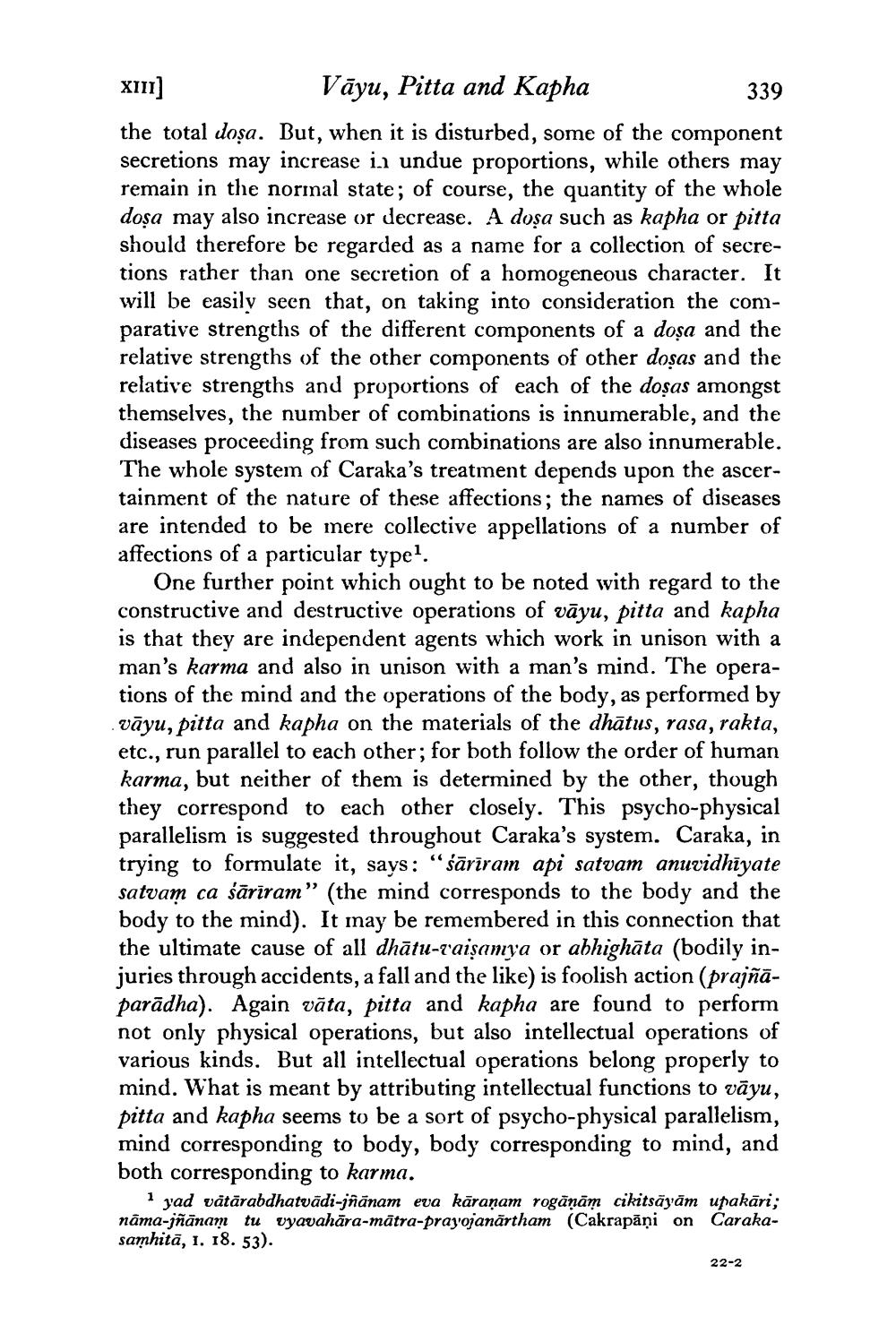________________
X11] Vāyu, Pitta and Kapha
339 the total dosa. But, when it is disturbed, some of the component secretions may increase i. undue proportions, while others may remain in the norinal state; of course, the quantity of the whole doşa may also increase or decrease. A doşa such as kapha or pitta should therefore be regarded as a name for a collection of secretions rather than one secretion of a homogeneous character. It will be easily seen that, on taking into consideration the comparative strengths of the different components of a dosa and the relative strengths of the other components of other dosas and the relative strengths and proportions of each of the doșas amongst themselves, the number of combinations is innumerable, and the diseases proceeding from such combinations are also innumerable. The whole system of Caraka's treatment depends upon the ascertainment of the nature of these affections; the names of diseases are intended to be mere collective appellations of a number of affections of a particular type?
One further point which ought to be noted with regard to the constructive and destructive operations of vāyu, pitta and kapha is that they are independent agents which work in unison with a man's karma and also in unison with a man's mind. The operations of the mind and the operations of the body, as performed by vāvu, pitta and kapha on the materials of the dhātus, rasa, rakta, etc., run parallel to each other; for both follow the order of human karma, but neither of them is determined by the other, though they correspond to each other closely. This psycho-physical parallelism is suggested throughout Caraka's system. Caraka, in trying to formulate it, says: "śārīram api satvam anuvidhiyate satvam ca śārīram” (the mind corresponds to the body and the body to the mind). It may be remembered in this connection that the ultimate cause of all dhātu-raisamya or abhighāta (bodily injuries through accidents, a fall and the like) is foolish action (prajñāparādha). Again vāta, pitta and kapha are found to perform not only physical operations, but also intellectual operations of various kinds. But all intellectual operations belong properly to mind. What is meant by attributing intellectual functions to vāyu, pitta and kapha seems to be a sort of psycho-physical parallelism, mind corresponding to body, body corresponding to mind, and both corresponding to karma.
1 yad våtārabdhatvādi-jñānam eva kāraṇam rogāņām cikitsāyām upakāri; nama-jñānam tu vyavahāra-mātra-prayojanartham (Cakrapāņi on Carakasamhitā, 1. 18. 53).
22-2




